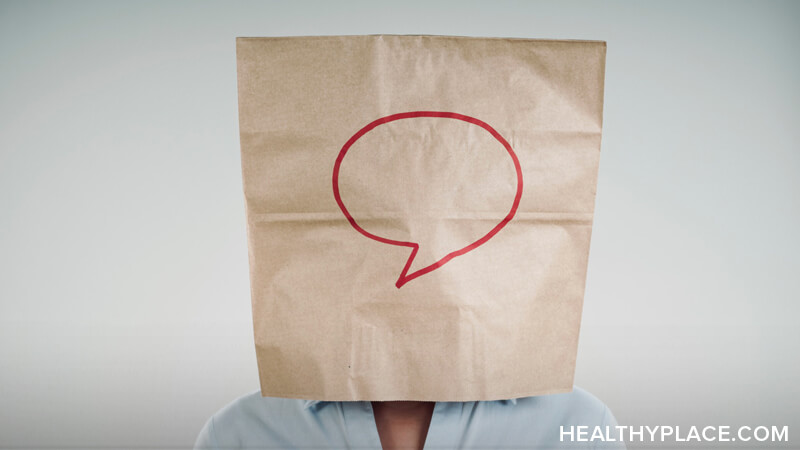Friendships and Mental Illness: Start by Befriending You

If you have difficulties with friendships and mental illness, you're not alone. Friendships are trickier than TV or movies make them seem. Also, living with mental health challenges--whether it's a diagnosed mental illness, personality disorder, or anxious thoughts and low mood that aren't diagnosable but still bothersome--adds a layer of difficulty to things that other people take for granted. You don't have to be forever frustrated by friendships or the lack of them. By starting with yourself and gradually moving outward with purpose, you can have quality, meaningful friendships no matter what mental health challenges you may face.
Mental Illness Can Interfere in Friendships and Your Social Life, but It Doesn't Have to Stop It
So many times, when it comes to friendships, mental illnesses get in the way. Mental illness causes self-doubt and can destroy self-confidence. While each type of mental illness and personality disorder is unique, with its own set of symptoms and ways of interfering in life, there are general ways that they make people hard on themselves and interfere in interactions with others. For example, mental illness and personality disorders can:
- Distort your thinking with automatic negative thought patterns and interpretations of yourself, others, and life situations, leading to unhelpful interpretations of what others say and do as well as causing harsh self-criticism
- Zap your energy and motivation, making it difficult to want to do be active with others
- Make it difficult for you to organize your time, energy, thoughts, emotions, and space which can make planning time with friends difficult
- Create strong emotions, like anger, irritability, sadness, or elation that can be hard to manage, especially around others
- Make it hard to know who to trust
These experiences can make finding friends and keeping friends difficult. That does not mean, however, that you are destined to a life of loneliness. Mental illness may cause symptoms that annoy you and interfere with what you want to do, such as hang out with friends, but they are only that--symptoms of an illness. They do not define who you are, and they don't make you unworthy of friendships. There is not a single person on the planet who is perfect, yet everyone deserves and can enjoy connections with others.
The process of creating and maintaining friendships can be more difficult when you live with mental health challenges, but it is definitely possible, and you deserve friends. An important first step in making friends is befriending yourself.
For Quality Friendships, Start with You
Because you spend so much time with yourself, befriend yourself. When you like yourself, your own confidence builds and radiates outward in a subtle signal that communicates to others that you believe you are someone worth being around and treating well.
Of course, if you're facing any type of mental health challenge or mental illness, it can be pretty difficult to befriend yourself. Chances are, it's easy for you to find reasons to be hard on yourself. Here are some ways to begin to be a good friend to yourself:
- Shift your focus from what is "wrong" with you to what is right--Your symptoms are real, but they are things you deal with. They're not character traits. When you catch yourself being hard on yourself, write down why so you can see it objectively. Then, write down other things about you, reasons why this thing you're beating yourself up for is only a symptom and doesn't define who you are.
- Allow yourself to explore what you love--Mental illness can bog us down as we manage symptoms. Free yourself from this trap by devoting time to exploring things that make you feel great. Know that "great" is personal, and be comfortable with that. For some, "great" might mean having energy; for others, it might mean feeling happy, and for still others, it might mean feeling calm. What does "great" mean to you, what little things make you feel that way, and how can you add more of them to your life?
- Nurture yourself--Treat your whole self well by eating healthy and exercising in a way that is pleasant for you. When you nourish yourself, you feel better and boost brain functioning, which in turn helps problematic thoughts and emotions. This helps you feel more ready to engage in friendships.
- Define what you want in your friendships--Not everyone wants tons of friends to hang out with on a daily basis. To have friendships doesn't mean you have to constantly be surrounded by people. The idea of friendships can be misleading because of the way it's portrayed on television or the movies and because of how it looks on social media with people posting pictures and tagging others left and right. That stuff is all on a screen. In reality, friendships look more subtle and quiet. What does friendship mean to you? If it means having one or two people you feel comfortable with and hang out with from time to time, know that this is okay. If you'd rather have lots of people in your life but not really hang out regularly with any one of them, that's okay too. Decide what you want in your friendships, and make that your goal.
There's no rush to the process of building friendships. Start by befriending yourself and exploring what you want in your friendships before intentionally seeking new relationships. Next time, we'll explore tips for creating friendships when you live with mental illness.
APA Reference
Peterson, T.
(2021, April 28). Friendships and Mental Illness: Start by Befriending You, HealthyPlace. Retrieved
on 2026, March 4 from https://www.healthyplace.com/blogs/mentalhealthforthedigitalgeneration/2021/4/friendships-and-mental-illness-start-by-befriending-you